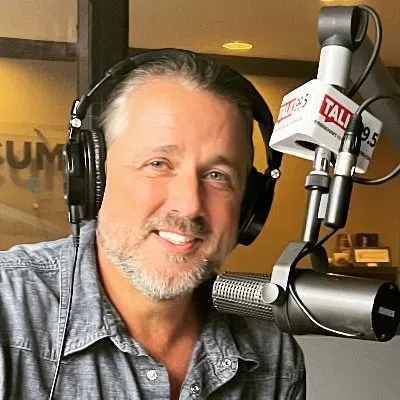For decades, the British Broadcasting Corporation — the BBC — was regarded as the gold standard of international journalism.
Its calm tone, rigorous standards, and aversion to partisanship made it a model for broadcasters worldwide.
But that reputation has been tarnished in recent years as even the BBC has succumbed to the same disease infecting so much of the global media: leftwing political bias.
Now, the BBC may be facing one of the biggest reckonings in its storied history.
President Donald J. Trump is preparing a defamation lawsuit against the network, and this time, it’s not a stunt.
The BBC made a major — and potentially catastrophic — mistake when it aired an edited clip of Trump’s January 6, 2021, speech that completely distorted his words and intent.
In its coverage of the Capitol protest, the BBC aired a segment showing Trump allegedly urging his supporters to “fight like hell” — but what they omitted was equally, if not more, important.
Just seconds later, Trump told the crowd to “peacefully and patriotically make your voices heard.” That key phrase was carefully cut from the BBC’s broadcast.
To anyone familiar with editing, the omission wasn’t accidental. It was deliberate — a choice designed to make Trump appear to be inciting violence when the full context shows precisely the opposite.
Such selective editing isn’t journalism. It’s propaganda.
Even within the BBC, the incident has sparked turmoil. Internal memos leaked by disillusioned staffers revealed deep concern about how the network’s U.S. coverage has “drifted into activism.”
Senior producers have been quietly reassigned, and there have been firings — a small but telling sign that the BBC recognizes it went too far. Accountability is welcome, but accountability after the damage is done doesn’t erase the harm.
President Trump is not walking into this fight alone.
His lawyer in the case is top gun defamation attorney Alex Brito of Miami, with a track record of succeeding in high-profile media cases.
Brito no doubt understands the challenge before him.
Florida, where the case is expected to be filed, has some of the toughest libel laws in the nation — laws that give broad protection to media organizations and make a legal win the court extremely difficult.
To prevail in court, Trump will have to show “actual malice” — that the BBC knowingly broadcast a falsehood or acted with reckless disregard for the truth. That’s a high bar, and most public figures never clear it.
But Trump’s team has strong evidence of malfeasance — not just of the misleading edit, but of intent, editorial discussions, and internal acknowledgment that the cut was designed for “narrative impact.”
Even if the legal odds are steep, Trump doesn’t just win cases in court. He wins them in the court of public opinion.
Recently, he’s forced major networks — including CBS and ABC — to issue quiet corrections and give big financial settlements after their reporting turned out not only to be false but highly manipulated.
The BBC may scoff at Trump’s $1 billion lawsuit, but they may have a funny way of changing their tune once discovery begins.
What’s really at stake here isn’t just one clip or one broadcaster. It’s the broader media deception surrounding January 6.
From the moment the events unfolded, outlets like the BBC, CNN, and The Washington Post portrayed Trump as the instigator of an “insurrection.”
Yet the facts tell a different story.
Trump’s speech that day explicitly called for peace.
Multiple sources, including the Pentagon, have confirmed that the Trump administration offered the National Guard to secure the Capitol — an offer rejected by congressional leaders including Nancy Pelosi.
While there were unquestionably bad actors at the Capitol that day, many protesters were arrested simply for walking through open doors or past barriers.
Videos later emerged showing unidentified individuals dismantling those “Do Not Trespass” signs and barricades before most Trump supporters even arrived.
How would such protesters even know it was improper to enter the Capitol building?
Meanwhile, reports surfaced that numerous FBI informants were present that day — a revelation that raises troubling questions about what federal authorities knew and when.
These are not conspiracy theories. They are legitimate issues that the mainstream press has largely ignored.
This is why Trump’s action against the BBC matters far beyond any personal vindication. It’s about exposing how major media institutions have repeatedly misled the public about January 6 — and about Trump himself.
When global broadcasters like the BBC manipulate facts, they don’t just smear one man; they warp history. They poison public trust in journalism and democracy alike.
The BBC’s quiet internal purges show it still has some conscience left. But true accountability requires more than firing a few editors. It requires telling the truth.
Trump’s lawsuit is a reminder that the powerful can and should be held to account — even if they are media powerhouses.
The president may be one man against the world’s most entrenched institutions, but history has shown that’s a fight he relishes.
Whether he wins in court or not, Trump is already winning in the court of public perception.
Americans — and Britons — are waking up to the unbelievable bias that masquerades as journalism.
So thank you, Mr. President, for once again forcing the truth into the light — and for holding the once-great BBC accountable.
Christopher Ruddy is CEO of Newsmax Media, Inc., a leading news company that operates Newsmax TV and Newsmax.com. Read more Christopher Ruddy Insider articles — Click Here Now.
© 2025 Newsmax. All rights reserved.






